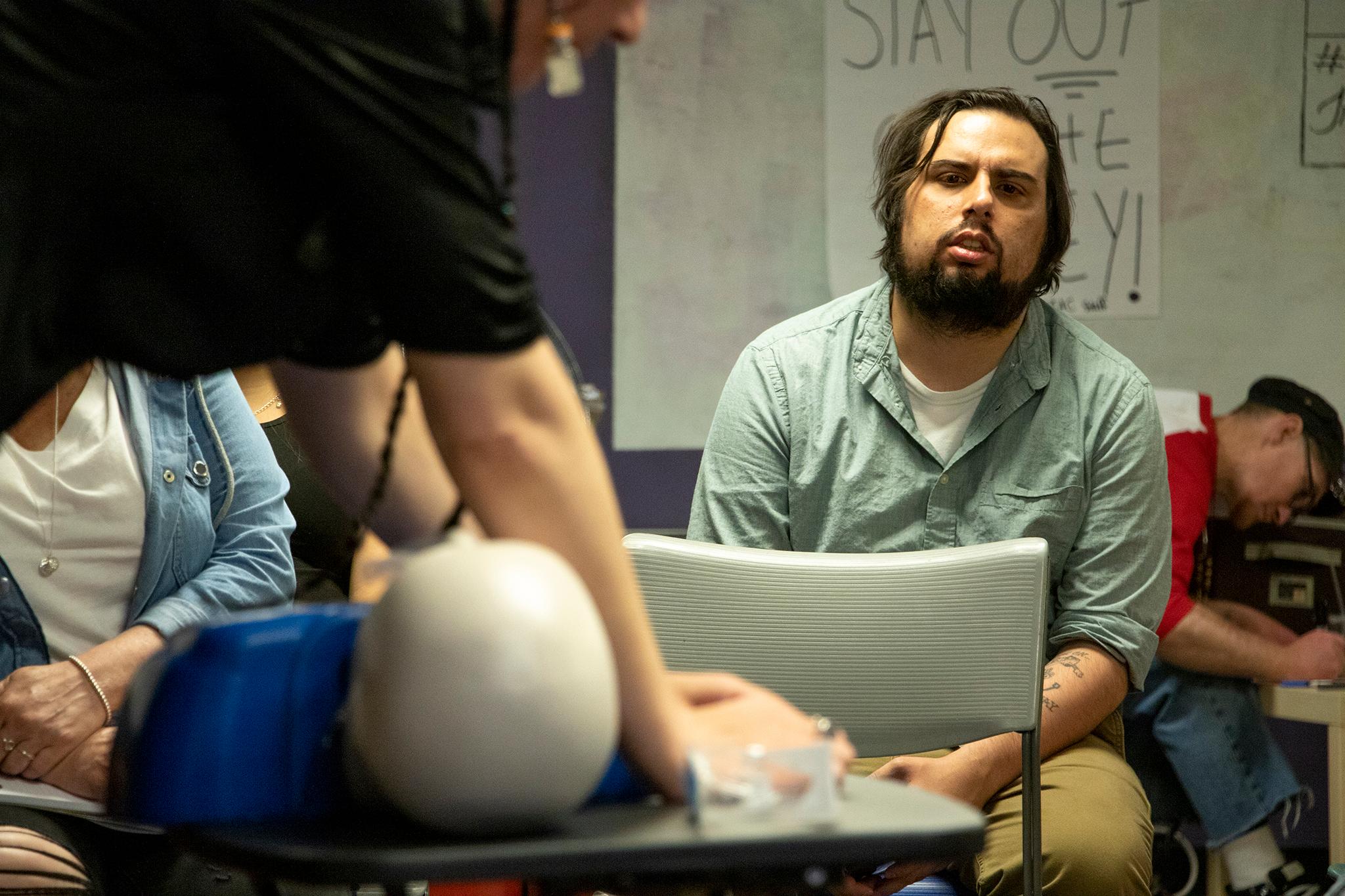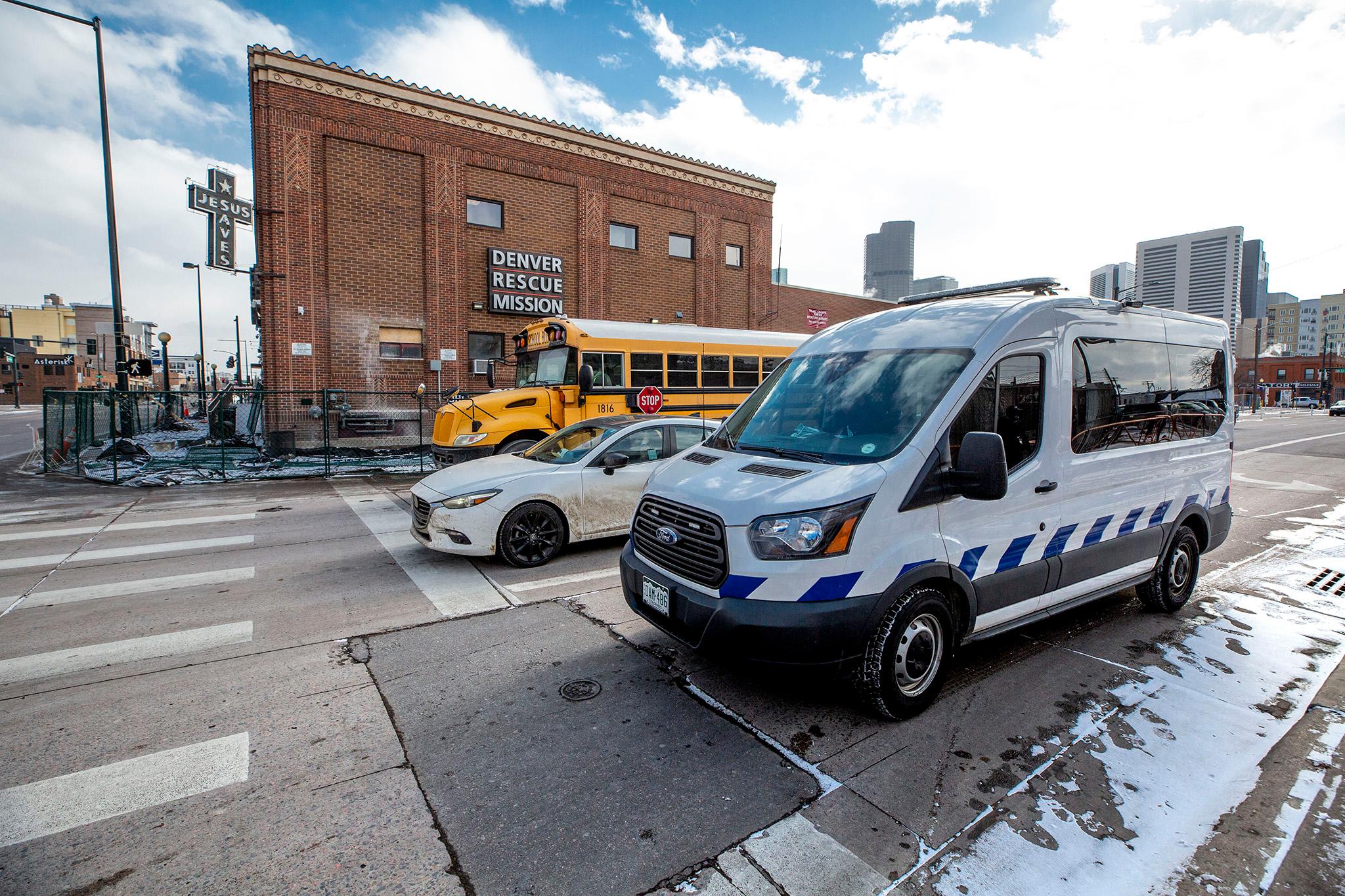Two groups advocating for a community-based response to people in crisis instead of sending police officers have taken issue with how the city government is handling the expansion of the Support Team Assisted Response, better known as STAR.
The Denver Alliance for Street Health Response, or DASHR, helped lay the groundwork for the program, which sends behavioral health professionals and paramedics to some nonviolent calls. DASHR has also been instrumental in the program's expansion, announced during a Wednesday committee meeting of the Denver City Council.
But Vinnie Cervantes, the organizing director of DASHR, said he and his organization were blindsided by some of the details conveyed to the public by the Denver Department of Public Health and Environment, which now manages STAR -- specifically that the expansion won't occur until late summer or early fall after contracts with new service providers are bid on and signed.
"We were under the assumption that we were under a time crunch with regards to getting funds out the door and getting the program on the ground," Cervantes said. "And so the news that they're planning on a fall launch is really alarming."

The charter from the committee charged with rolling out the expansion lists June 1 as the intended start date, but the document also indicates that the date is an idea, not a deadline.
"From my perspective, one of the things that myself and my team have been clear with the community group about is that the procurement and contract process in the city is an iterative and often long process," said Jeff Holliday with the behavioral health division of the public health department.
Councilmember Robin Kniech suggested Wednesday that Denver expand the current contract with the Mental Health Center of Denver and Denver Health, the organizations that currently comprise the STAR teams, to bulk up the intervention in the summer months when 911 calls spike.
The next iteration of the policing alternative will create six teams of first-responders who will be available 16 hours a day, seven days a week. Despite the delayed timeline provided by the city government Wednesday, a map included in the presentation indicated that the expansion of STAR would occur between April and June. The Department of Safety has since provided a map to Denverite that indicates an expansion date of July through September.
Nachshon Zohari, a program manager with the public health department, told councilmembers that it would take a while to release requests for proposals, receive the bids, and decide on service providers. The city put two contracts out for bid this week -- one that will expand what STAR is already doing and one that will add a "community providers" component meant to enlist the help of groups already on the ground.
Cervantes said that the additional contract was also a surprise because both the city and the community groups hammering out the details of the expansion had agreed not to pursue the add-on -- or so he'd thought.
"Taking on that process while we don't, frankly, have funding to really make an effective program that would serve this to whole city 24-seven, which is what we've demanded -- splitting funding up that way for another program, another (request for proposal), another pilot that hasn't even been fully fleshed out in terms of a vision or what this would do -- it just that doesn't make a lot of sense," Cervantes said.
Among several other stipulations, the original charter that lays out how STAR should expand stresses "community-driven control" of the program and a program that "will include responders and providers who share lived experiences and identifies with Denver's diverse population" to build trust with the people that it serves.
"I think that the community group will be pleased when the solicitations come out in that we did focus very intently on their value statements and their charter," Holliday said.
DASHR has facilitated the conversation about the expansion with a coalition of several groups from the city government and community providers including Denver Homeless Out Loud, Servicios de La Raza and the Harm Reduction Action Center, among others, who Chief of Police Paul Pazen credited with helping the STAR program get up and running. No meeting minutes or recordings of the meetings are available.
Black Lives Matter 5280 was another group credited with STAR's creation and success but that was news to Black Lives Matter 5280.
The group said Chief Pazen misled the public during Wednesday's presentation to the city council.
"We support the need for non-law enforcement community responses to 9-1-1 and crisis calls, such as the STAR pilot program. We would not work with law enforcement-led co-responder models, which send police officers and mostly white social workers to calls," BLM 5280 wrote in a statement, referencing a separate program that pairs Denver Police Department officers with social workers. "The current co-responder models lack trauma-informed care through sending law enforcement to crisis calls."
In an interview with Denverite, Pazen framed the use of BLM 5280's name as an honest mistake. He had in mind well-known activist Jesse Parris, who participated in conversations about STAR and has characterized himself as a representative of Black Lives Matter 5280, when he credited the group with helping.
"Serious apologies if it upset people. I think that is certainly not the intent," Pazen said. "We were merely giving credit to an active participant in the group."
He emphasized that DPD, which is phasing out its management of STAR as the public health department, was only one part of a huge lift to bring the alternative policing method to Denver.
"This wasn't something where we just, like, snapped our fingers," he said. "We were working on this for nearly four years. I wanted to give everybody credit."
"This is not a DPD thing that we did by ourselves by any means."













